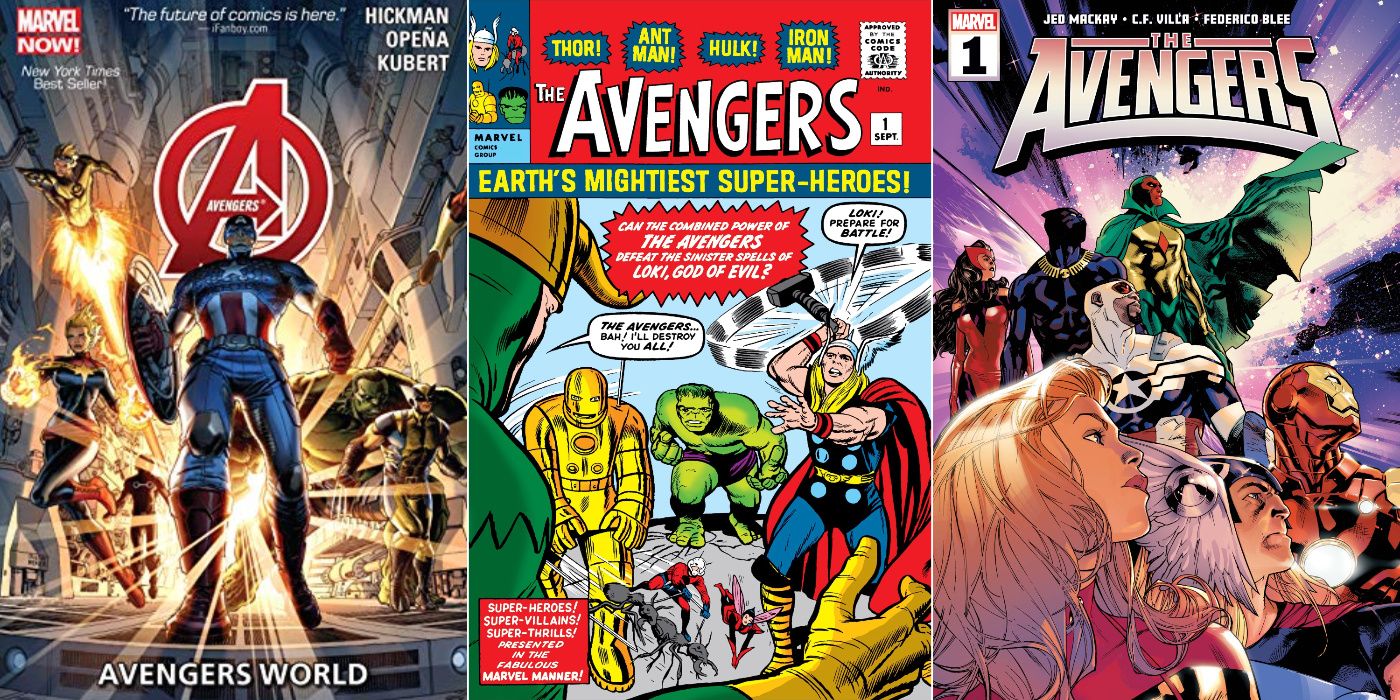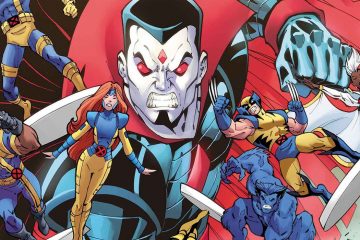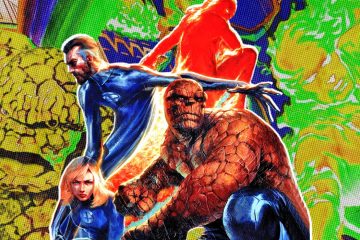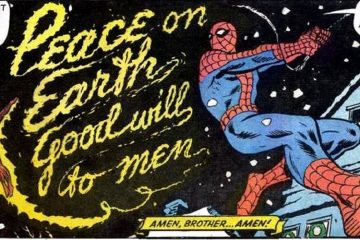In the 21st century, the Avengers finally took their place at the top of pop culture. Looking back at Avengers history, they were always comics’ second-best team; while they were more powerful than the X-Men and the Fantastic Four, both of those teams handily outsold the Avengers for the majority of the last sixty years. It’s really only been since the ’00s and the rise of New Avengers that the Avengers finally took their place at the top of the sales charts before the MCU came and blew things into the stratosphere.One of the Avengers’ key problems is that the isn’t an amazing and original premise like most of its competitors. The Avengers are basically Marvel’s Justice League, which makes them both unique and derivative. Looking back over the years, the Avengers are much better when they’re actually embracing their role as Marvel’s JLA than when they’re trying to set off in an entirely new direction.Avengers history is full of epic moments, but going back to their debut shows how Stan Lee and Jack Kirby were basically just copying their distinguished competition. This was way more prevalent than most hardcore Marvel fans like to believe. DC’s success with superheroes in the early Silver Age is the only reason Marvel got back into the superhero game, and the Fantastic Four are basically just DC’s Challengers of the Unknown, co-created by Jack Kirby, but now with superpowers. The Avengers were the next big copy-paste job. Like the Justice League before it, it gave readers a book where they could read about all of Marvel’s greatest heroes in one place. This would change with issue sixteen, when Cap’s Kooky Quartet debuted when Captain America led a team that consisted of Scarlet Witch, Hawkeye, and Quicksilver, but they didn’t last long and gave way to an Avengers team that contained all of Marvel’s most powerful heroes again.Every Marvel Hero Vs. Every DC Hero: Who Wins?The MCU Held Thanos Back From His Ultimate Accomplishment In The Comics
In the 21st century, the Avengers finally took their place at the top of pop culture. Looking back at Avengers history, they were always comics’ second-best team; while they were more powerful than the X-Men and the Fantastic Four, both of those teams handily outsold the Avengers for the majority of the last sixty years. It’s really only been since the ’00s and the rise of New Avengers that the Avengers finally took their place at the top of the sales charts before the MCU came and blew things into the stratosphere.
One of the Avengers’ key problems is that the isn’t an amazing and original premise like most of its competitors. The Avengers are basically Marvel’s Justice League, which makes them both unique and derivative. Looking back over the years, the Avengers are much better when they’re actually embracing their role as Marvel’s JLA than when they’re trying to set off in an entirely new direction.
Avengers history is full of epic moments, but going back to their debut shows how Stan Lee and Jack Kirby were basically just copying their distinguished competition. This was way more prevalent than most hardcore Marvel fans like to believe. DC’s success with superheroes in the early Silver Age is the only reason Marvel got back into the superhero game, and the Fantastic Four are basically just DC’s Challengers of the Unknown, co-created by Jack Kirby, but now with superpowers. The Avengers were the next big copy-paste job. Like the Justice League before it, it gave readers a book where they could read about all of Marvel’s greatest heroes in one place. This would change with issue sixteen, when Cap’s Kooky Quartet debuted when Captain America led a team that consisted of Scarlet Witch, Hawkeye, and Quicksilver, but they didn’t last long and gave way to an Avengers team that contained all of Marvel’s most powerful heroes again.
#Avengers #Work #Theyre #Justice #League
Note:- (Not all news on the site expresses the point of view of the site, but we transmit this news automatically and translate it through programmatic technology on the site and not from a human editor. The content is auto-generated from a syndicated feed.))



